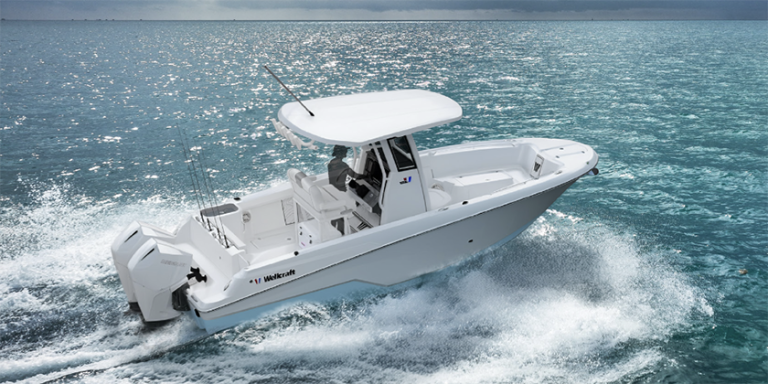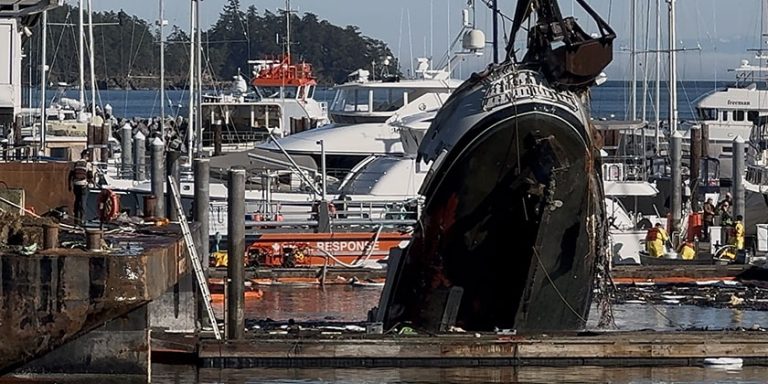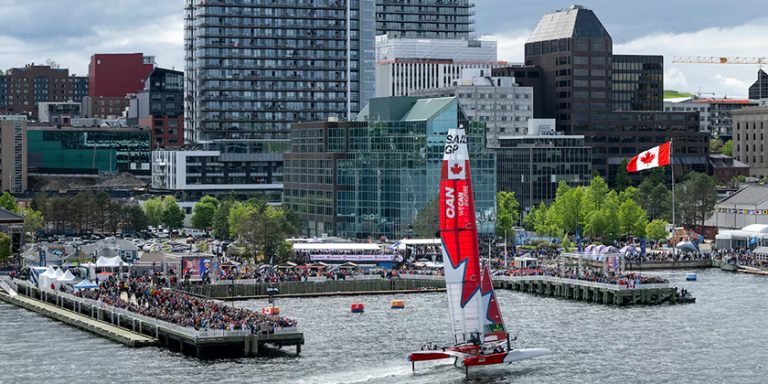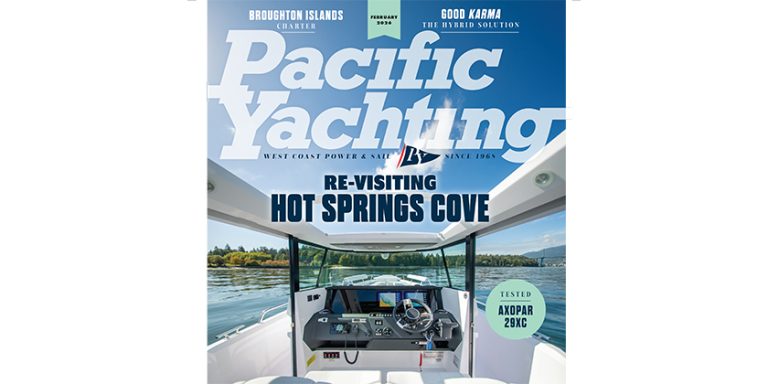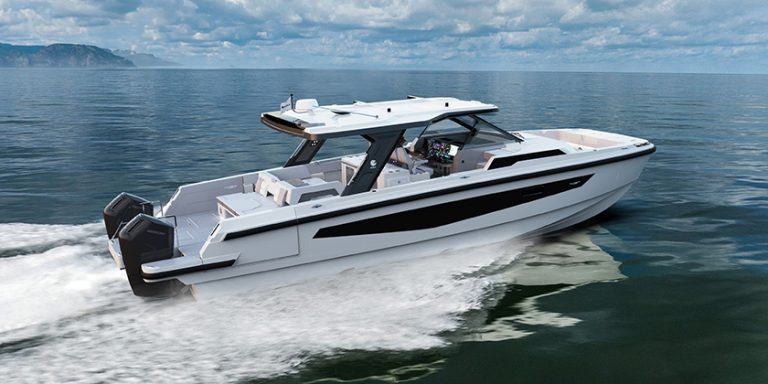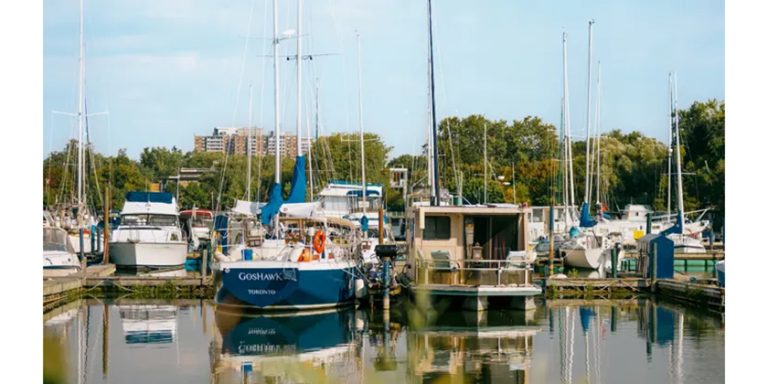Route Halifax Saint-Pierre 2016: A Battle Between Big and Little
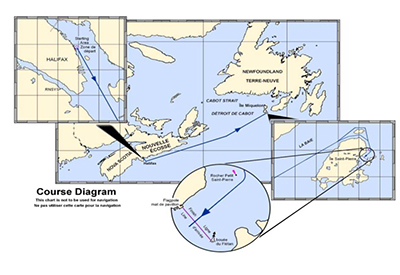
May 24, 2016
When Route Halifax Saint-Pierre 2016 fleet hits the start line in Halifax harbour on Sunday, July 10th, the battle for first place promises to be more exciting than ever. Three 60-footers are entered in the race as well as a Nacira 6.50 (that is just 21 feet) designed for the Mini-Transat. Despite its small size, “Shanawdithit” had the fastest corrected time in the 2014 race.
The three big boats are all offering training spaces to aspiring sailors who want to try ocean racing. There aren’t many ocean races in the Atlantic region and RHSP 2016 provides the experience while not requiring the huge time commitment of longer races, according to Chris Stanmore-Major. His Spartan Ocean Racing company based in Nova Scotia provides professional offshore sailing development for crew who pay their own way. “Challenger” is a Whitbread 60 (the design now known as Volvo 60) that spent years in long term storage in California before he found it and put it in racing order. He is planning to have two professional crew and fourteen paying crew members for Spartan’s first entry in this race.
“We are hoping for good weather so we can get the chute up and have a fast trip!” says Stanmore-Major. “We know from our racing in the Caribbean this winter she’s fast. We are working now to see what we can do to get the best performance. But no matter what the weather brings, we’ll be looking for a safe and enjoyable race for our crew.”
The course for Route Halifax Saint-Pierre 2016 runs 365 nm. from Halifax, Nova Scotia to the small French Islands of Saint-Pierre and Miquelon, which lie off the coast of Newfoundland at the entry to the Gulf of St. Lawrence. The race has become legendary for its warm reception from the Saint-Pierre community. Families adopt each racing crew to welcome them to the Islands. Live music and entertainment greet sailors and the friends and family who fly in to join them at the Café de la Route on the waterfront. And local racing and on shore events are planned as the Islands celebrate the French national holiday, Bastille Day on July 14th.
Race director Richard Hinterhoeller says by July, the winds in the region are dominated by the Azores high. “Historically that means you’ll have a 75% chance of moderate (11-16 knot) winds aft of the beam – ideal sailing. It simply doesn’t get better,” according to Hinterhoeller. He looked back at his records of the seven races and found six have tended to be fast with boats PHRF rating of 75 finishing with an elapsed time ranging from 47 to 56 hours. “But,” he warns, “There was the slow race where an equivalent boat took 80 hours to finish, so skippers should be ready to carry a range of sails.” The race record is held by Derek Hatfield’s Open 60 “Spirit of Canada”. In 2012, the vessel was first across the line in a fast trip of 29:43:56.
The two other 60-foot racers entered will be competing in RHSP for the first time. Esprit de Corps II(previously Ocean Phoenix IV) and Esprit de Corps III are part of a relatively new sailing development program based in Quebec called Equipe Atlas/Team Atlas.
Maxime Grimard, a business executive, is the president of the team. “Although the team has crossed the Atlantic twice successfully, this will be the first time the boats will take part in an ocean race. Mostly the two boats match race with each other. There is a healthy competition between the boats and that has a real advantage for training.” Team Atlas uses sail training to share leadership skills with CEOs and other business executives in Quebec.
As a vessel, Esprit de Corps II has a long and successful racing history, having competed in the Whitbread Round the World Race in 1997, and winner of the Sydney-Hobart Race in 1999. It is co-owned by well-known Quebec skipper Georges Leblanc and Gilles Barbot, one of the key sponsors of Team Atlas. Esprit de Corps III is owned by Barbot. This boat is also a 1997 Whitbread Round the World Race boat. It was in storage for eight years in the Netherlands before Barbot bought it.
Grimard works with Barbot’s company, also called Esprit de Corps, a consulting company that specializes in coaching and leadership.
Some of the Quebecers who are active team members include an adventurer and Afghanistan war veteran who recently returned from the Antarctic, a surgeon, the president of a real estate company, a TV producer and a CEO from a company based in Victoriaville, a small community southeast of Montreal. “That’s what I love about our team,” says Grimard, “we have a wide range of people and skills and their ages range from 25 to 63.”
He is enthusiastic about the potential for sailing to become a headline sport in Quebec. The team’s mission is to become ocean racing leaders in Canada. “I want to make sailing the new Formula One in Quebec. We have the economic environment and the ability to involve many more people in this sport.” So far, Team Atlas has recruited dozens of business executives as team members to make the two trans-Atlantic crossings and is hoping to continue to add members to their team. Their summer plans include stops along the Gulf of St. Lawrence as they head to Halifax and a visit to Ontario ports later in the summer to introduce the team’s work to a wider audience.
“It would be awesome to win our first race at RHSP 2016,” says Grimard. “But it is just as important to the Team that we get to Saint-Pierre still working together as brothers-in-arms. It’s more about the human experience than winning a race.”
Stanmore-Major has similar goals. “Our crew on this trip can expect to be supported and safe, both emotionally and physically and come away with a high level of in depth training with someone who has been there. I have spent a number of years working as a sail trainer in Hong Kong. And I have done two round the world races – the Velux 5 Oceans and as a skipper for the Clipper Round the World Race, which taught me about the long term management of amateur crews. I have a lot of ocean miles behind me as a skipper. I’m pushing 245,000 miles…which is equivalent to the distance to the moon!
The rest of the fleet will be Canadian, French and American yachts, mostly in the 30 to 40 foot range. A number of returning skippers are registered, including one of the race’s co-founders, Philippe Paturel whose Ciao Baby! was first in IRC in 2014. Two new American boats are registered. The rest, so far, are from Nova Scotia. The race committee, headed by former Royal Nova Scotia Yacht Squadron commodore George Chisholm is working hard to attract more entries while there is still time to get ready.
Stanmore-Major says the attraction of an ocean race can’t be understated: “Sailing is one of the last frontiers where people can test their abilities and learn about themselves. You leave port and just beyond the horizon is where your effort really counts and where leadership is needed.”
Potential crew members for either Team Atlas or Spartan Ocean Racing can contact those organizations directly for more details.
Skippers who are interested in registering for the race can go directly to the Race’s Yachtscoring registration page or email Race Director Richard Hinterhoeller for more information: racedirector@routehalifaxsaintpierre.com.
Route Halifax Saint-Pierre is a joint project of the Royal Nova Scotia Yacht Squadron in Halifax and the Yacht Club de Saint-Pierre.
For more information, please contact:
Mikela Sani
Communications Manager, RNSYS
Halifax, N.S.
902-477-5653

